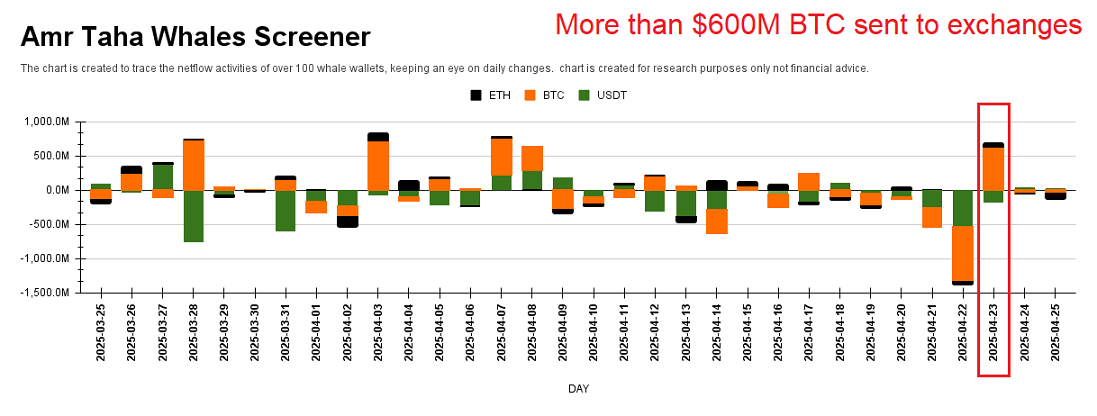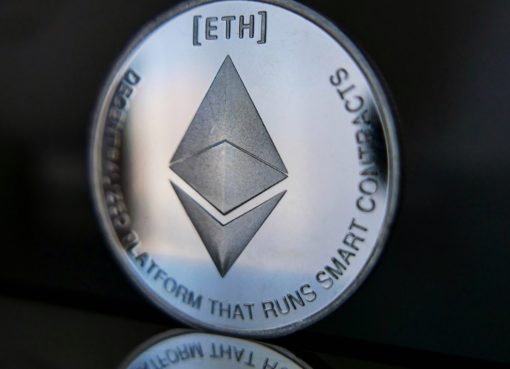Reason to trust
Strict editorial policy that focuses on accuracy, relevance, and impartiality
Created by industry experts and meticulously reviewed
The highest standards in reporting and publishing
Strict editorial policy that focuses on accuracy, relevance, and impartiality
Morbi pretium leo et nisl aliquam mollis. Quisque arcu lorem, ultricies quis pellentesque nec, ullamcorper eu odio.
Ethereum is gradually regaining momentum after a recent correction, now trading above $1,700, reflecting a 12.2% increase over the past week. This recovery has drawn attention from analysts, who seem to be looking into the asset’s movement for signs of sustained strength or renewed volatility.
Despite this short-term rise, ETH remains approximately 63% below its all-time high of $4,878 reached in 2021, highlighting the broader downturn that has characterized the Ethereum market since late 2021.
Related Reading
Ethereum Derivative Exchange Inflows Point to Potential Volatility
Recent on-chain data and exchange flows suggest Ethereum’s price trajectory may be influenced by broader macro factors and strategic trading behavior. Among the latest observations is a notable surge in ETH sent to derivative exchanges, a metric often linked to increased speculative activity or changes in trader positioning.
This trend, coupled with key political developments in the US, has raised new questions about what might be next for Ethereum and the wider crypto market.
According to an analysis by Amr Taha, a contributor on CryptoQuant’s QuickTake platform, Ethereum has recorded unusually large inflows to derivative exchanges in the past 48 hours, with one spike exceeding 80,000 ETH.
Historically, such inflows are seen ahead of periods of increased volatility, as traders shift assets to leverage positions or hedge against expected price movements. While not a definitive predictor of direction, this behavior suggests rising expectations of short-term market activity.
Taha’s analysis notes that the inflow coincided with a recent political statement from US President Donald Trump, who confirmed he has no intention of removing Federal Reserve Chair Jerome Powell.
This announcement was interpreted by markets as a signal that the Fed will continue to operate independently, easing concerns about political interference in monetary policy.
Taha notes that given how closely crypto markets respond to central bank tone and economic indicators, this development added a layer of macro stability to a market already reacting to technical signals.
BTC Whale Activity and Derivatives Data Suggest Tactical Shifts
While Ethereum-specific data remains the primary focus, Taha also highlighted key movements in Bitcoin markets that may have indirect effects on ETH. On April 23, over $600 million worth of BTC was transferred from whale wallets to exchanges, marking the largest single-day BTC inflow in several weeks.

This came after a breakout in the BTC/GBP pair, which triggered significant short liquidations. According to Taha, the large BTC transfer may reflect a setup where late long entries could face downside risk if selling pressure intensifies.
For Ethereum, this backdrop raises the possibility of a short-term retracement, especially if correlated selling occurs across major digital assets.
Related Reading
A buildup of long positions sitting just below current price levels, paired with newly added exchange supply, introduces liquidity zones that the market may test. As a result, both BTC and ETH could see increased volatility in the near term, driven by stop-loss hunts or profit-taking activity.
Featured image created with DALL-E, Chart from TradingView



